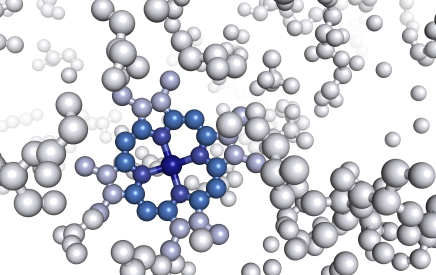“Artificial antimicrobial peptides could help overcome drug-resistant bacteria”
“During the past several years, many strains of bacteria have become resistant to existing antibiotics, and very few new drugs have been added to the antibiotic arsenal.
To help combat this growing public health problem, some scientists are exploring antimicrobial peptides — naturally occurring peptides found in most organisms. Most of these are not powerful enough to fight off infections in humans, so researchers are trying to come up with new, more potent versions.
Researchers at MIT and the Catholic University of Brasilia have now developed a streamlined approach to developing such drugs. Their new strategy, which relies on a computer algorithm that mimics the natural process of evolution, has already yielded one potential drug candidate that successfully killed bacteria in mice.
“We can use computers to do a lot of the work for us, as a discovery tool of new antimicrobial peptide sequences,” says Cesar de la Fuente-Nunez, an MIT postdoc and Areces Foundation Fellow. “This computational approach is much more cost-effective and much more time-effective.”
De la Fuente-Nunez and Octavio Franco of the Catholic University of Brasilia and the Dom Bosco Catholic University are the corresponding authors of the paper, which appears in the April 16 issue of Nature Communications. Timothy Lu, an MIT associate professor of electrical engineering and computer science, and of biological engineering, is also an author.”
Source: MIT News



